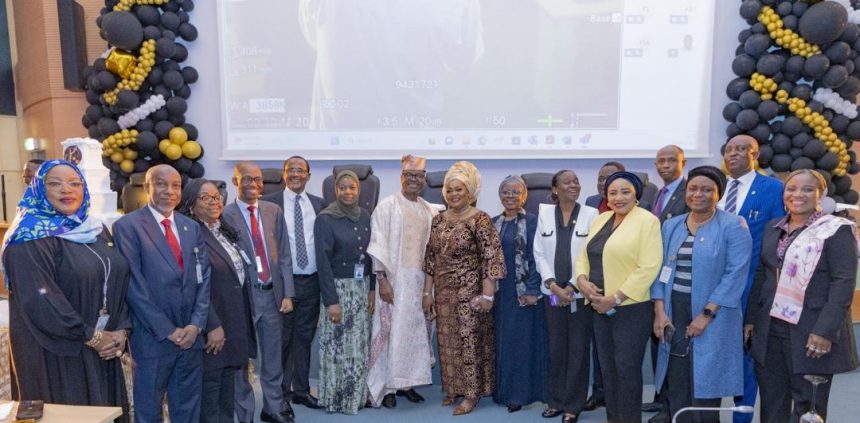Lawyers in P&ID Case Advise FG on Future Contract Procurement
…Praise CBN Legal Chief
By Patience Ikpeme
Foreign legal counsel who successfully represented Nigeria in the P&ID case have offered crucial advice to the federal government on safeguards to consider before awarding high-value contracts in the future. The recommendation focuses on strengthening procurement processes and conducting thorough due diligence to prevent a recurrence of past issues.
Shaistah Akhtar, a Partner at Mishcon de Reya LLP, conveyed these insights during a send-off ceremony for the Director of the Legal Services Department of the Central Bank of Nigeria (CBN), Mr. Kofo Salam-Alada. She stated that “these are things to look out for in the procurement process and in the process of awarding these high-value contracts going forward.”
Akhtar acknowledged that despite Nigeria possessing sophisticated anti-corruption and anti-money laundering laws, “things did go wrong in this case, where government officials were bribed. The contract was not as robust as it should have been. It was quite a flimsy contract for such a long-running and high-value transaction.” She added that “there wasn’t any due diligence carried out on the contractors, who were effectively a two-man band and an offshore company with no assets and no track record.”
She noted that “there are many lessons that can be learned from the case. There were many things that went wrong. Nigeria has a very sophisticated infrastructure in terms of anti-corruption laws, anti-money laundering laws.”
Speaking about the controversial P&ID case, Akhtar explained that “this was a case where P&ID was a shell company that brought a claim of many billions of dollars against the government in respect of a gas supply and processing agreement, which never broke ground. And the upshot was they obtained an arbitral award, which they were trying to enforce. By the time it got to enforcement, the award was worth around $11 billion, which amounts to around a third of Nigeria’s foreign reserves, and several times its education, health, and security budgets.”
She described the potential liability as “huge.” The government then instructed her firm to challenge the award, and they succeeded in setting it aside after overcoming several hurdles.
The significance of Nigeria’s victory in the P&ID case, she noted, is multifaceted. “The implications are, obviously, it’s a huge liability, economic liability, which has been removed. It is also a great symbol in the fight against corruption. It’s a practical implementation of the government’s anti-corruption policy. And it also sets a powerful deterrent against other fraudsters who may be trying to take advantage of the government and exploit its resources.”
Shaistah Akhtar also shed light on the crucial role Mr. Salam-Alada played in Nigeria’s success in the P&ID case. She revealed that “Mr. Salam-Alada played a critical role in this case. The case itself was handled as a collective effort from, obviously, the Ministry of Justice, the Central Bank, and the Ministry of Petroleum, which were the parties to the litigation.”
She further explained that “Kofo Salam-Alada was given the day-to-day, he was delegated the day-to-day responsibility of dealing with the lawyers. And he played an essential role in terms of giving instructions, obtaining information and ensuring that we as the lawyers had the tools that we needed to pursue this case.”
“And he worked extremely hard over a period of five and a half years with us now, and going above and beyond the call of duty, working all hours and dealing with a number of government agencies and government officials in order to obtain the instructions and the information we needed to pursue this case.”
Akhtar added, “We’ve learned to appreciate Kofo’s qualities as a professional and an individual. And so we have a very long-standing interaction with Salam-Alada as a senior representative of the Nigerian government. And his work on this case, which many of you will be familiar with, has been invaluable.”
She concluded by saying, “He has been a critical part of the success of this case, which has saved the Nigerian government this enormous liability of $11 billion. This is an important result, not just for the government, but for the 200 million people of Nigeria. So it’s a great part of the legacy.”
“And we feel very proud to have worked with him and to have known him over this time. It’s been a pleasure to work with. He is a great representative of the government, a great servant of Nigeria. And you have left a great outcome which will benefit many generations to come.”




